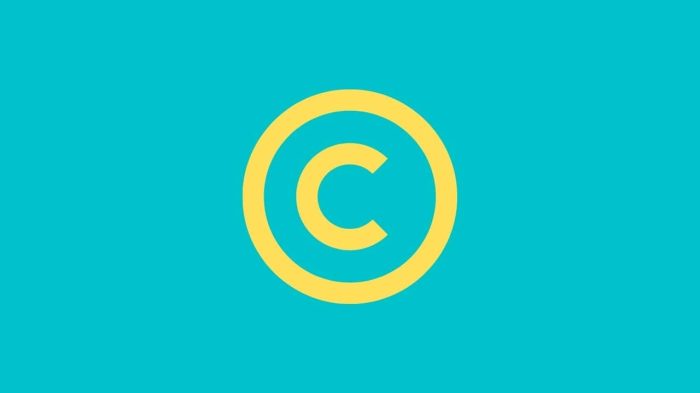Introduction
A copyright is a type of legal protection granted by the United States to authors of “original works of authorship” fixed in any physical medium of expression. Fixation methods and mediums are nearly limitless. Words, figures, notes, sounds, photographs, or any other graphic or symbolic media can be used to capture creative expression. Copyright covers a wide range of works, including literary, dramatic, musical, artistic, audiovisual, and architectural works. Both published as well as unpublished works are under protection.
The copyright owner has the exclusive right to reproduce, adapt, distribute, publicly perform, and publicly exhibit the work under the 1976 Copyright Act. The copyright owner has the right to perform the work publicly via digital audio transmission in the case of sound recordings. These special rights can be licensed, sold, donated to charity, or passed down to your heirs. Anyone who violates the copyright owner’s exclusive rights is breaking the law. Preliminary and permanent injunctions (court orders to stop current or prevent future infringements), impounding and destruction of infringing products, and monetary remedies are all available if the copyright owner prevails in an infringement action.
How to secure copyright?
Many people believe that you must register your work before claiming copyright. This is an often misunderstood topic. However, to secure copyright, no publication, registration, or other activity with the Copyright Office is required. A copyright is automatically secured when a work is created and is “made” when it is first fixed in a “copy” or phonorecord.
- The copyright claim becomes a public record once it is registered.
- Before a lawsuit for infringement may be filed in court, you must first register (for works of U. S. origin).
- Registration offers prima facie proof in a court of the validity of the copyright and the facts contained in the certificate if made before or within five years of publication.
- In court actions, statutory damages and attorney’s costs will be available to the copyright owner if registration is made within three months of the work’s publication or before an infringement of the work. Otherwise, the copyright owner is only entitled to a judgment of real damages and profits.
- Registration permits the copyright owner to register the copyright with the United States Customs Service to prevent the importation of infringing copies.
What works are eligible for copyright protection in the US?
Any qualifying ‘original works of authorship fixed in a physical form of expression are protected under US copyright law. The fixation does not have to be directly visible as long as it can be communicated through a machine or instrument.
Copyrightable works are broadly defined to encompass the following categories, which are illustrative and not exhaustive:
- literary works;
- dramatic works, including any accompanying music;
- musical works, including any accompanying words;
- pantomimes and choreographic works;
- pictorial, graphic, and sculptural works;
- motion pictures and other audiovisual works;
- sound recordings; and
- architectural works.
Works excluded from copyright protection.
Copyright protection does not extend to ideas, techniques, principles, discoveries, or technologies. Facts are not protected by copyright. Copyright law protects titles, names, brief phrases, or slogans. Articles with a practical function (so-called ‘useful articles’) are often not protected by copyright. Works that have not been fixed in a physical form or medium are not protected by copyright because fixation is one of the requirements for copyright protection. This could include unrecorded choreographic works and unwritten or unrecorded improvised speeches or performances.
How long does copyright protection last?
The copyright’s duration is determined by when the work was made, published, and/or registered. The duration of the work also depends on whether one person generated it, several people, as an employee, or under the direction of another person or corporation. Copyright protection begins at the time of creation and lasts for 70 years beyond the author’s death for works created by individual writers on or after January 1, 1978. The phrase “a joint work” (created by two or more writers) lasts for 70 years after the death of the last surviving author. Copyright protection for works created for hire and anonymous and pseudonymous works typically lasts 95 years from publication or 120 years from creation, whichever comes first.
The duration limitations for works created before January 1, 1978 (covered under the 1909 Copyright Act) are substantially different (and much more complex). The length of time is determined by several criteria, including whether the work was “published” and whether the copyright was renewed. In general, copyright protection under the 1909 Copyright Act begins with the first publication of the work and lasts for 28 years, renewable for another 28 years, for a total of 56 years of protection. Congress increased the renewal term to 47 years in 1976, bringing the total protection period to 75 years. Congress extended the renewal time by another 20 years in 1998, bringing the total term of protection to 95 years from publication.
Copyright lasts for 70 years after the author’s death for works created but not published or registered before January 1, 1978. (or at least through December 31, 2002). The copyright term for works published on or before December 31, 2002, is valid until December 31, 2047.
Will copyright protect authors overseas?
Copyright protection is mainly based on the country where protection is sought, making it territorial. On the other hand, most countries are signatories to the Berne Convention on the Protection of Literary and Artistic Works and/or the Universal Copyright Convention, which provides major protections for foreign authors.
Qualifying foreign work must normally obtain the same protection as domestic production under these accords. The notion of “national treatment” is a cornerstone of international copyright law. International copyright agreements also establish “minimum copyright protection criteria.”
Conclusion
I hope this article cleared your concepts related to copyright. If you still have any doubts, you can contact us, and our attorneys will be delighted to help you.




 by Prozco®
by Prozco®